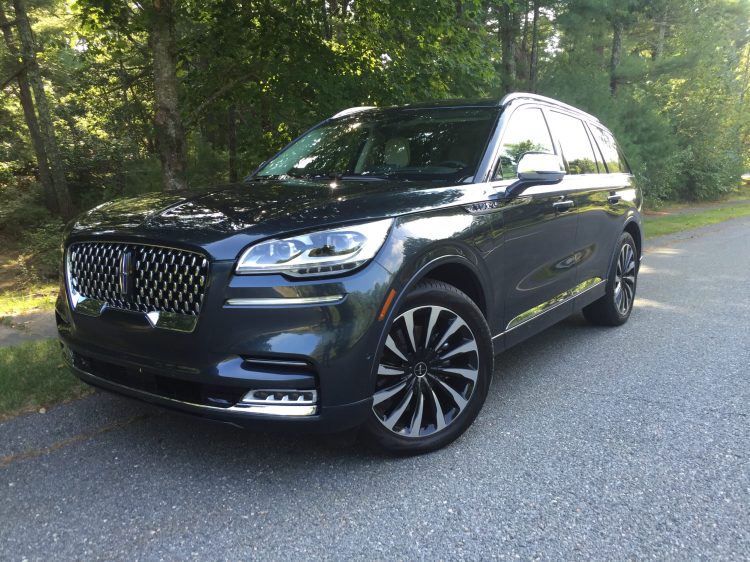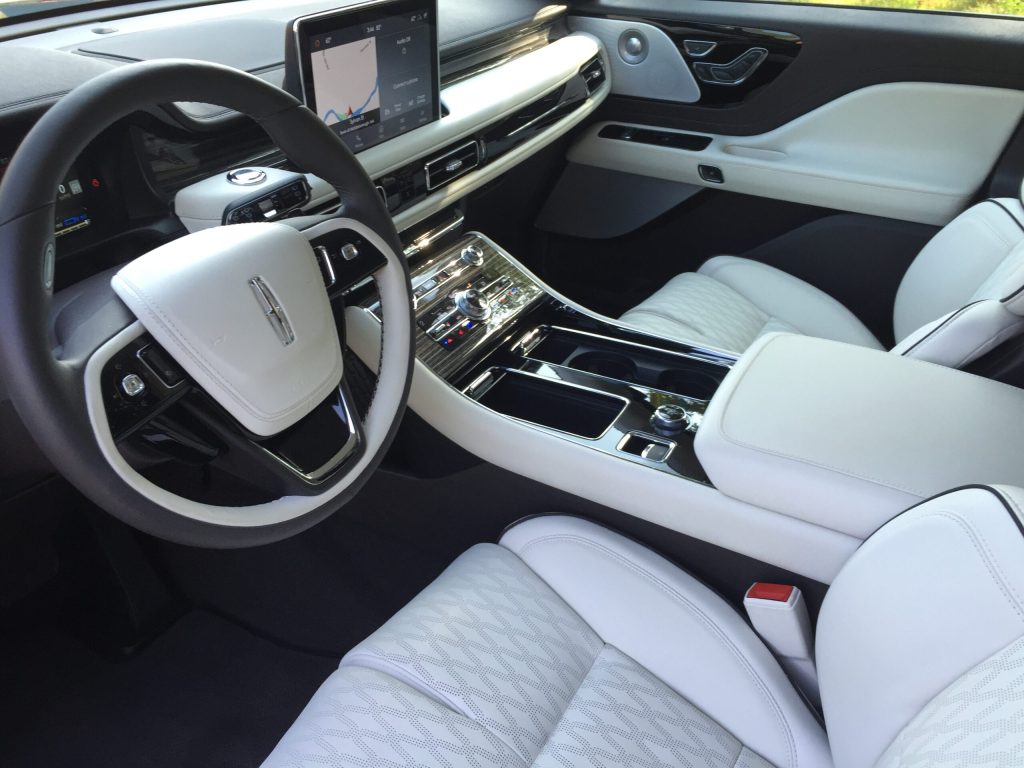MIDDLEBORO, Ma. — For well over a decade, Ford Motor Company’s Lincoln brand has been caught on a plateau—new models designed to revive the brand succeeding in fits and starts as the marketplace evolves quicker, in different directions. Mired near the bottom of the luxury segment—a sales race that used to be ruled by Lincoln and Cadillac in America—Lincoln finally appears to be in position to move aggressively up the sales charts with stunning new products.
The third chapter in a four-part renaissance, after Navigator and Nautilus SUV debuts last year, the new Aviator 3-row crossover replaces the former MKT model. Also noted; Lincoln is dropping the silly alpha titles for its products and restoring the proper names that buyers can better relate too. In discussions with the multiple Lincoln staffers presenting this night in Massachusetts, several auto scribes had much good natured fun poking fun at these departing monikers.
Matthew McConaughey continues in his role as Lincoln’s primary spokesperson, but nothing else is carried over with this new Aviator—a name from a previous Lincoln SUV. The new Aviator, which shares its basic platform with the upcoming Explorer, uses a rear-drive chassis (with optional full-time AWD) and two new Lincoln powertrains. A twin-turbo 3.0-liter V-6 making 400-hp is standard, while a new plug-in-hybrid version of the same engine makes an impressive 494-hp with 630-pound/feet of peak torque. Each engine is mated to a 10-speed automatic transmission. EPA estimates are 18-miles on pure electric operation for the hybrid, while fuel economy estimates range from 17/24 to 19/27-mpg respectively for the two powertrains.
At 199-inches long on a 119-inch wheelbase, the six or seven passenger Aviator easily slots in between the full size Navigator and the mid-size, two-row Nautilus. Aviator weighs in at 4,900-pounds base, up to 5,700-pounds in totally loaded Black Label Grand Touring Hybrid trim. Towing limits were not released.
Early next year, the fourth crossover/SUV debuts—the new Corsair will replace the compact class premium MKC.
Short drives around Middleboro revealed several of the Aviator’s virtues. The stylish cabin features the brand’s signature 30-way Perfect Position Power seats, an adjustable air-suspension with 3”-inches of lift, plus Lincoln’s suite of electronic driving safety aids called Co-Pilot 360 Plus. Using multiple sensors, Co-Pilot includes evasive steering assist with the dynamic cruise and emergency braking program, as well as full active parking assist for hands-free parallel parking. New LED lighting “bends” the headlamps for cornering, plus brightens and refocuses the headlamps as speed increases for better overall visibility down the road.
The Aviator can use your smartphone as the vehicle key, there is a new 28-speaker Revel Ultima 3D Audio system, plus the adaptive suspension uses twelve forward sensors to read the road ahead and make damping corrections in the chassis, steering, and braking to smooth the ride.
The cabin looks great, feels great and is easy to use, with the technology effectively simple with touchscreens complimented by a plethora of knobs and conventional controls. Continuing a recent tradition; the transmission control is a piano-key-like horizontal series of buttons in the middle of the dash.
The sampled hybrid model is also darned powerful, whooshing you down the road with muscle-car like acceleration. Hushed inside, and smooth at the corners, the Aviator felt graceful, composed. The shape also got noticed by many other drivers.
Pricing starts at $52,195 for a base RWD Aviator, rising to $59,795 for the volume model Reserve trim with AWD. The plug-in hybrid version starts at $69,895. The aforementioned Black Label Grand Touring Hybrid, with all of the bells and whistles like Air-Glide suspension, color-matched luggage, and multi-function heads-up display, tips the scales at $88,895.
The Aviator makes the Lincoln brand a player at a time when crossovers remain hot. The Continental sedan is still available, as is the MKZ sedan for a short time, yet with a modern fleet of luxury SUV’s and crossovers—all with proper names—hitting showrooms now, these vehicles should propel Lincoln back up the sales charts.
Comments are not available on this story.
Send questions/comments to the editors.




